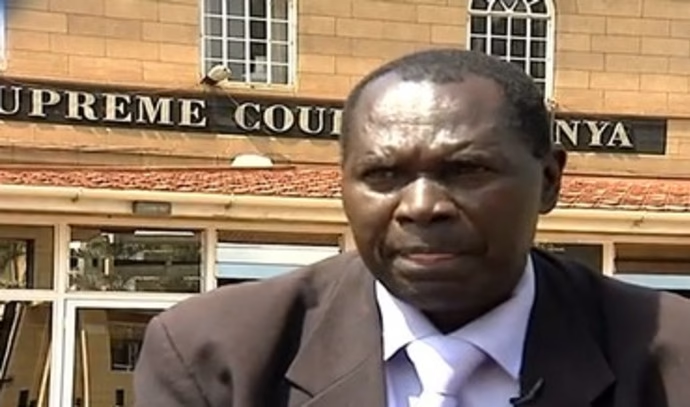
A Kenyan lawyer made global headlines after filing a petition to the International Court of Justice (ICJ) at The Hague, demanding accountability for the crucifixion of Jesus Christ. The plaintiff, Dola Indidis, claims that Jesus’ trial and execution were unlawful, and he is seeking a declaration of wrongdoing from modern-day governments he believes are successors to those responsible.
Dola Indidis, a former spokesperson for Kenya’s judiciary, is no stranger to controversial litigation. However, his legal action against the States of Israel and Italy – representing what he identifies as the modern-day remnants of the Roman Empire and Jewish authorities involved in Jesus’ death – has drawn international media attention and a mix of reactions from legal, religious, and political communities.
“I am not doing this for publicity,” Indidis said during a press interview in Nairobi. “I’m seeking truth and justice through a legal path, even if symbolic. Jesus’ trial was biased and legally flawed, and history should acknowledge that injustice.”
According to Indidis, the crucifixion violated Jesus’ human rights and international legal standards, even by ancient norms. He claims that the legal proceedings leading to Jesus’ death lacked fairness, due process, and legal representation, pointing to Biblical and historical texts as evidence.
The defendants named in the petition include Pontius Pilate, King Herod, Emperor Tiberius, and the Jewish elders of the Sanhedrin – all long deceased. However, Indidis argues that the modern states of Israel and Italy, as legal successors, should be held accountable for the actions of their predecessors.
Legal experts, however, say the case has no standing. “The International Court of Justice does not hear cases against historical figures or theological events,” said international law scholar Dr. Martin Otieno. “It also cannot try cases brought by individuals – it only resolves disputes between states.”
The ICJ ultimately rejected the case, stating it fell outside its jurisdiction. Still, the lawsuit stirred up debate across global media and religious circles. Some observers saw the move as absurd, others as a thought-provoking call for historical reflection.
In Kenya, reactions were equally divided. Many citizens expressed support for Indidis’ boldness, viewing it as a form of spiritual justice. Others dismissed it as misguided. Social media platforms lit up with memes and debates, while mainstream outlets reported on the case with a blend of curiosity and disbelief.
Religious leaders also weighed in. Some Christian figures admired the gesture as a powerful reminder of Jesus’ innocence and the flaws of human justice. Others emphasized that the crucifixion was a divine plan, not a crime to be prosecuted.
Though the case is legally defunct, Indidis stands by his intentions. “It’s not just about legal success,” he said. “It’s about healing historical wounds and questioning systems that continue to fail people today.”
Whether viewed as symbolic justice or legal theater, the case adds another layer to humanity’s ongoing conversation about truth, justice, and how the past continues to echo in our modern institutions.

